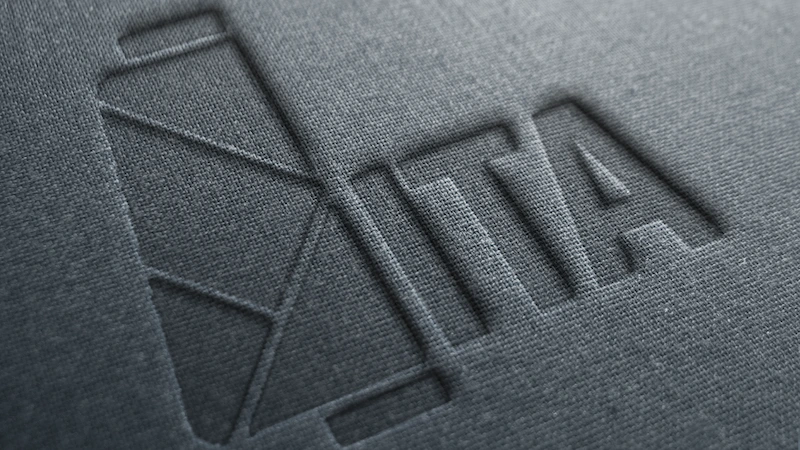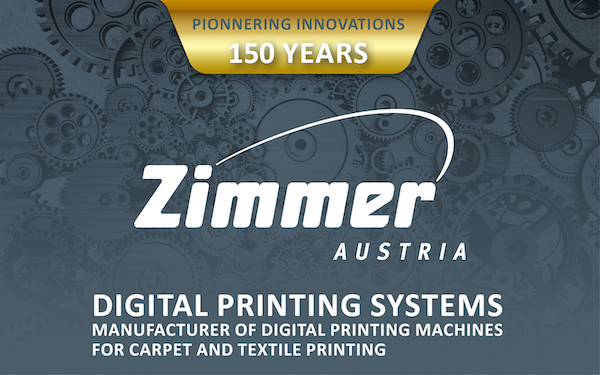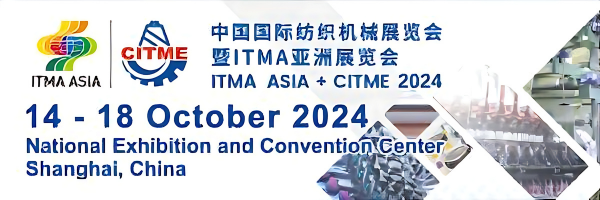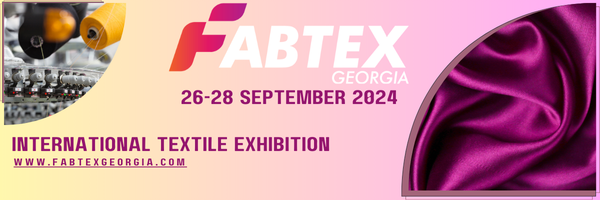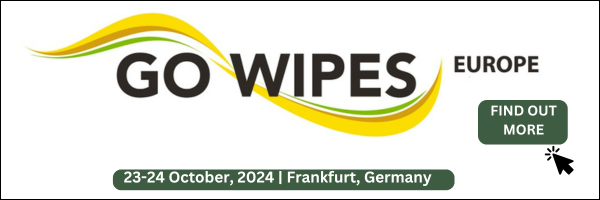In today’s interview, we have the privilege of speaking with Maryam Sodagar, a researcher in the Flat Composite Reinforcements department at the Institut für Textiltechnik (ITA) of RWTH Aachen University.
ITA stands as a beacon of excellence in textile engineering, covering the entire spectrum of the textile process chain from fiber creation to the development of semi-finished textiles, composites, and recycling methods. With a mission to bridge academia and industry, ITA’s research endeavors are closely aligned with market needs, fostering innovations that are both cutting-edge and sustainable.
Maryam offers insights into ITA’s key research areas, collaborations with industry partners, educational initiatives, and the institute’s contribution to advancements in eco-friendly practices within the textile domain. Join us as we delve into a captivating dialogue with Maryam Sodagar, exploring ITA’s role in shaping the future of textile technology and education, and its commitment to sustainability and innovation.
Could you give us an overview of ITA Institut für Textiltechnik der RWTH Aachen University and its contribution to the advancement of textile technology?
The Institut für Textiltechnik (ITA) at RWTH Aachen University is a globally recognized center for textile engineering, covering the entire spectrum of the textile process chain from fibre creation to the development of semi-finished textiles, composites, and recycling methods.
ITA’s comprehensive research and development efforts span smart textiles with embedded electronic functionalities, advanced composite materials for lightweight construction, and innovative manufacturing processes that prioritize efficiency and product quality.
With a strong commitment to bridging academia and industry, ITA ensures its projects are closely aligned with market needs, fostering advancements that are both innovative and sustainable. By addressing the full textile process chain, ITA plays a crucial role in enhancing the textile industry’s value chain, contributing to environmental sustainability, and shaping the future of textile technology worldwide.
What are the primary research and innovation areas that ITA focuses on, and how do they benefit the textile industry?
At the heart of the textile industry’s evolution, ITA carves a niche with its forward-thinking research and innovation, propelling the sector into new realms of possibility and performance. ITA’s comprehensive approach spans from the integration of cutting-edge smart textiles, which are redefining the boundaries of functionality and interactivity in fabrics, to the exploration of high-strength composite materials that promise to lighten the load for transportation and construction industries.
The institute’s commitment to digitalization through Industry 4.0 technologies is pioneering smarter, more efficient production processes, heralding a new era of manufacturing precision and productivity. Furthermore, ITA’s dedication to environmental stewardship is evident in its pursuit of sustainable textile solutions, aiming to reduce the industry’s carbon footprint and promoting recycling and circular economy practices.
This multifaceted research endeavor not only amplifies the textile industry’s capacity for innovation but also aligns with global sustainability goals, ensuring that the future of textiles is as green as it is bright. By fostering close ties with industry partners, ITA ensures that its breakthroughs in textile technology transcend academic achievement, becoming tangible innovations that enhance the quality, sustainability, and efficiency of textile products worldwide.

How does ITA Institut für Textiltechnik collaborate with industry partners to drive innovation in the textile sector?
ITA fosters innovation in the textile sector through a multifaceted approach to collaboration with industry partners. This approach ensures that research and development efforts are not only groundbreaking but also directly relevant and applicable to the industry’s needs. Here’s how ITA collaborates with industry partners to drive innovation:
Joint Research Projects
ITA engages in joint research projects with companies from various sectors of the textile industry, including automotive, aerospace, healthcare, and fashion.
These collaborations are designed to address specific challenges faced by the industry, such as developing new materials, improving manufacturing processes, or integrating smart technologies into textiles. By working closely with industry partners, ITA ensures that its research is aligned with real-world applications and contributes to solving practical problems.
Technology Transfer
A key aspect of ITA’s collaboration with industry is the transfer of technology from research to commercial application. This involves licensing patents, sharing technical know-how, and providing consultancy services to help companies implement new technologies in their operations.
Through technology transfer, ITA helps companies stay at the forefront of innovation, ensuring they can leverage the latest advances in textile technology to enhance their competitiveness.
Customized Training and Education
ITA offers customized training programs and workshops for industry professionals, aimed at updating their knowledge and skills in line with the latest developments in textile technology. This education initiative helps bridge the gap between academia and industry, ensuring that the workforce is equipped to tackle emerging challenges and capitalize on new opportunities in the textile sector.
Collaborative Platforms and Networks
ITA actively participates in and sometimes leads collaborative platforms and networks that bring together academia, industry, and government entities.
These platforms facilitate the exchange of ideas, foster partnerships, and promote a culture of innovation across the textile sector. By participating in such networks, ITA helps to stimulate cross-industry collaboration and drive collective efforts towards technological advancement.
Startup Support and Incubation
ITA supports startups and entrepreneurs in the textile sector by providing access to its research facilities, offering mentorship, and connecting them with potential investors and partners. This support helps to nurture innovation at its earliest stages, ensuring that promising ideas can develop into viable products and services that meet the needs of the market.
Through these collaborative efforts, ITA plays a crucial role in bridging the gap between academic research and industrial application, fostering a vibrant ecosystem of innovation within the textile sector. This not only leads to the development of cutting-edge textile technologies and products but also contributes to the overall growth and sustainability of the industry.

How is ITA addressing current challenges and opportunities in the textile industry through its research and educational initiatives?
ITA is addressing current challenges and seizing opportunities in the textile industry through a series of targeted research and educational initiatives. These efforts are designed to propel the industry forward, ensuring its relevance, sustainability, and innovation in a rapidly evolving global market. Here’s an overview of how ITA is making an impact:
· Addressing Sustainability and Environmental Concerns
Sustainable Materials and Processes: ITA’s research focuses on the development of eco-friendly materials and the optimization of processes to reduce water and energy consumption. This includes the creation of biodegradable textiles and the implementation of recycling technologies to minimize waste.
Circular Economy Models: The institute is exploring circular economy principles, aiming to extend the lifecycle of textiles through reuse, recycling, and recovery, significantly reducing the industry’s environmental footprint.
· Advancing Digitalization and Industry 4.0
Smart Textiles: ITA is at the forefront of integrating sensors, actuators, and connectivity into fabrics, leading to the development of smart textiles that can monitor health, improve safety, and enhance user interaction.
Digital Manufacturing Technologies: By researching and applying digital manufacturing techniques, such as 3D printing and automated knitting, ITA is helping the textile industry to become more flexible, efficient, and capable of producing customized products on demand.
· Fostering Innovation in Material Science
Composite Materials: ITA’s work in creating lightweight, high-strength composite materials is finding applications in various industries, including automotive, aerospace, and construction, driving demand for textile-based solutions.
Functional and High-Performance Textiles: The institute is developing textiles with enhanced functionalities, such as antimicrobial properties, UV protection, and thermal regulation, meeting the specialized needs of sectors like healthcare, sports, and protective clothing.
· Promoting Health and Well-being
Medical Textiles: ITA is engaged in research to produce medical textiles for applications such as implantable devices, wound care, and wearable health monitors, contributing to advancements in healthcare and improving patient outcomes.
· Educational Initiatives and Workforce Development
Curriculum Development: ITA is involved in developing cutting-edge educational programs that equip students with the knowledge and skills needed to address contemporary challenges in the textile industry.
Professional Training and Workshops: The institute offers training and workshops for industry professionals, promoting lifelong learning and ensuring that the current workforce can adapt to new technologies and methodologies.
· Collaboration and Knowledge Exchange
Industry Partnerships: Through collaboration with industry partners, ITA ensures that its research is directly applicable to solving real-world problems, facilitating the rapid transfer of innovation from the laboratory to the market.
Global Networks: By participating in and forming global networks, ITA fosters international collaboration, sharing knowledge, and best practices, which enriches the global textile community and encourages cross-border innovation.

Could you shed light on recent breakthroughs or noteworthy projects that ITA has engaged in within the field of textile technology?
Within ITA’s extensive portfolio of around 130 R&D industrial private and public-funded running projects, several groundbreaking projects in the realm of textile technology have emerged. One notable recent project focuses on revolutionizing carbon fibre production through collaboration across public-funded projects.
ITA researchers developed an innovative technique that significantly increases the speed of carbon fibre production while reducing energy consumption and waste.
This advancement holds the potential to make carbon fibres more accessible for mass production, with applications spanning lightweight vehicles and energy-efficient structures. Additionally, ITA is actively involved in projects dedicated to not only find non-structural but also semi-structural and structural applications for natural biodegradable fibres, achieved through process modification and optimization.
ITA’s achievements also extend to competitions and recognitions. Notably, the start-up SA-Dynamics founded by ITA researchers, earned 1st place in the business plan competition KEUR.NRW 2023 for their work on sustainable construction using bio-based aerogel fibres.
ITA researchers have partnered on projects like the sustainable removal of oil spills using textiles and have received prestigious awards, such as the Walter Reiners Foundation Awards 2023, recognizing innovations like cost-effective carbon fibres and fibre-to-fibre recycling in textile recycling.
Furthermore, the “BIOTEXFUTURE” project, funded by the federal ministry of education and research, aims to transform the textile value chain from petroleum-based to bio-based textiles. Lastly, the “INGRAIN” project seeks to repurpose waste materials from agriculture and the food industry into valuable applications within the textile industry.
These achievements and projects are a few examples that highlight ITA’s impactful contributions to advancing textile technology.
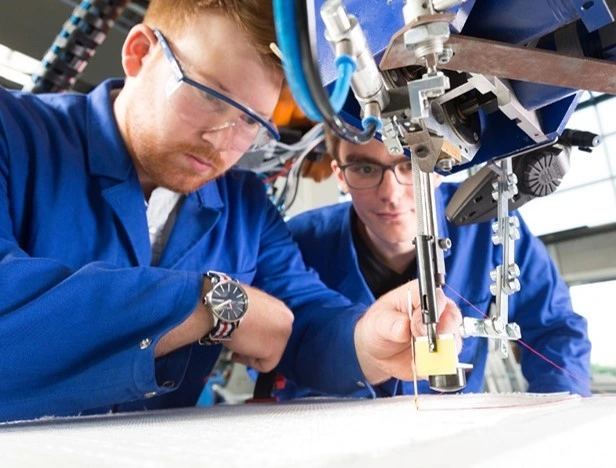
How does ITA Institut für Textiltechnik actively involve students and professionals to nurture a skilled workforce for the textile industry?
ITA exemplifies excellence through its hands-on research opportunities, rich ecosystem of collaboration, and significant impact on education and professional development within the textile industry.
Annually, ITA educates around 200 undergraduate students, laying a robust foundation in textile engineering and technology, while also engaging around 120 scientists in doctoral and post-doctoral positions to advance the frontiers of textile research.
This unique environment, where educational programs blend seamlessly with real-world problem-solving and advanced research opportunities, fosters innovation and prepares the next generation of textile professionals to tackle industry challenges.
By integrating industry internships and partnerships, ITA allows participants to gain firsthand experience in the operational aspects of the textile world, enhancing their understanding of manufacturing, innovation, and application complexities.
This approach, supported by a vibrant community of learners, educators, and industry experts, facilitates a continuous dialogue between academia and the textile industry. ITA ensures that its curriculum is not only relevant but also responsive to the technological advancements and market needs.
Through this comprehensive engagement strategy, ITA accomplishes more than just preparing individuals for immediate contributions to the textile industry; it instils a foundation for lifelong learning and adaptation. This is essential for driving future innovations and sustaining the industry’s growth.
ITA’s dual focus on education and research excellence solidifies its position as a key player in shaping the future of the textile industry, fostering a workforce that is innovative, skilled, and ready to address the evolving demands of a global market

Amidst the changing landscape of sustainability, how does ITA Institut für Textiltechnik contribute to the progression of eco-friendly and sustainable practices within the textile domain?
ITA plays a pivotal role in steering the textile industry towards a more sustainable future, actively addressing the evolving landscape of environmental concerns.
ITA’s contributions span the breadth of the textile domain, from the development of sustainable materials to the promotion of eco-friendly manufacturing processes and recycling.
By focusing on alternative, renewable resources and recycled materials, ITA is setting new standards for material sustainability, aiming to reduce the dependency on water, energy, and harmful chemicals traditionally associated with textile production.
Innovation in recycling technologies at ITA is reshaping the concept of waste in the industry, turning post-consumer textiles and production remnants into valuable resources.
This approach not only mitigates waste but also curtails the extraction of virgin materials, significantly diminishing the environmental impact of textile manufacturing. By enhancing these processes to be more energy-efficient, ITA is helping the industry cut down on one of its most significant environmental footprints.
Beyond technological advancements, ITA emphasizes the importance of lifecycle assessments and adherence to sustainability standards.
Through rigorous evaluation of textiles’ environmental impact from production to disposal, ITA aids companies in identifying and implementing improvements, fostering a culture of transparency and accountability. Collaborative endeavors with partners across sectors further amplify ITA’s impact, as it brings together diverse stakeholders to forge collective pathways towards sustainability.
Crucially, ITA embeds sustainability into the core of its educational initiatives, preparing a new generation of textile professionals who are not just aware of but are equipped to tackle environmental challenges head-on.
Through this holistic approach, ITA is not merely contributing to the textile industry’s immediate sustainability goals but is also shaping an enduring legacy of environmental stewardship, ensuring the industry’s innovation aligns with the pressing demands of ecological sustainability.
Looking ahead, what are the future goals and aspirations for ITA in terms of shaping the future of textile technology and education?
Looking towards the future, ITA is poised to redefine the landscape of textile technology and education, underpinned by a vision that marries innovation with sustainability and societal well-being. ITA’s journey forward is characterized by a deep commitment to pioneering sustainable textile solutions that aim to revolutionize the industry’s environmental footprint.
The future for ITA also signifies a profound engagement with Industry 4.0, transforming textile manufacturing into a beacon of digital innovation, automation, and efficiency. This evolution reflects ITA’s ambition to prepare the textile industry for the demands of tomorrow, emphasizing agility, customization, and sustainability.
Simultaneously, ITA is set to delve deeper into the realms of smart textiles and wearable technologies, where the fusion of textiles with digital capabilities opens new horizons for human health, safety, and interaction. This exploration is not just about embedding technology into fabrics but reimagining the very role textiles play in an increasingly connected and digital world.
In this forward trajectory, ITA is dedicated to fostering global collaboration and knowledge exchange. By building more bridges with partners across continents, ITA aims to spark a global dialogue on textile innovation, ensuring that advancements are shared, inclusive, and universally beneficial.
This global perspective is crucial for tackling the universal challenges of sustainability and equitable access to technology.
Through this holistic and ambitious vision, ITA is not just aiming to shape the future of textile technology and education but is also positioning itself as a catalyst for a more sustainable, equitable, and technologically advanced world. The path ahead for ITA is one of transformative impact, driven by a belief in the power of textiles to change the world for the better.



